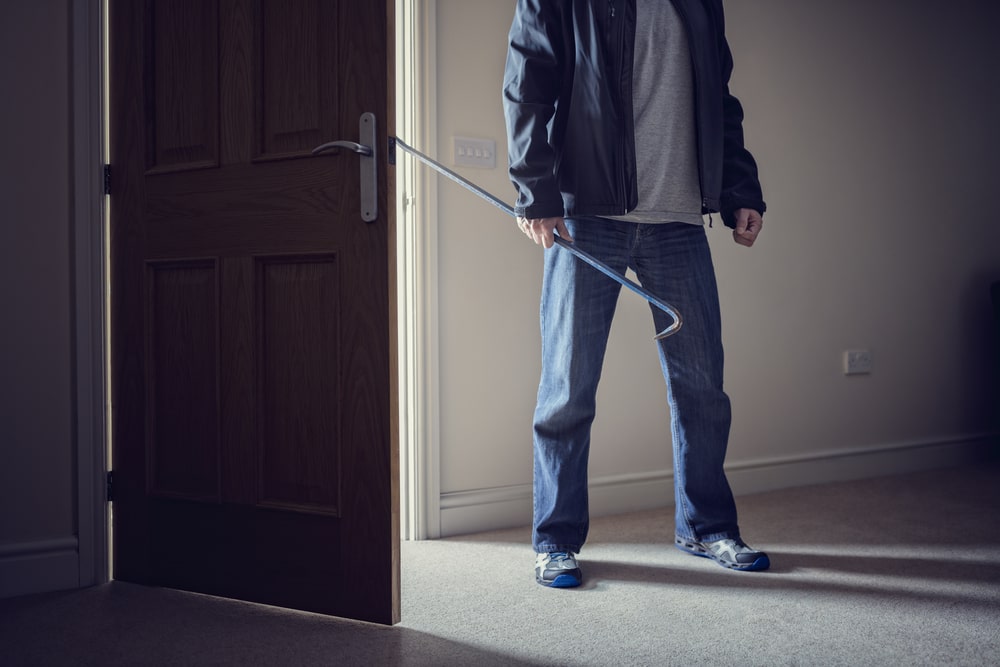Criminal Trespass Attorney Tucson
Is Trespassing a Felony in Arizona?
Most criminal trespassing is a misdemeanor. For example, most property owners just want people off their property, and only request a law enforcement officer’s help when a person refuses to leave and insists on remaining unlawfully. A law enforcement officer acting on behalf of the owner is there to help the owner reestablish lawful control of the property. None of this is felonious.
Exceptions to the rule occur when a person commits criminal trespass someplace high profile. For example, military facilities (think Area 51) and certain federal structures will nearly guarantee a felony conviction. You can contact a criminal trespass attorney in Tucson to find out more about when trespassing is a felony.

How Much is a Trespassing Ticket in AZ?
If they stick, criminal trespassing charges will get you fined. Third-degree charges max out at $500 and second-degree at a $750 cap, both with an 80% surcharge. First-degree charges max out at $2,500 with an 84% surcharge. Most trespassing happens on commercial, private, and residential property, and doesn’t exceed trespassing in the second or third degree.
You may have noticed the surcharges in the 80% range. That means that costs are nearly doubled whatever the value of the initial fine. It’s also important to be mindful that some of these convictions come with probation, and there are costs associated with that. Additionally, time is priceless, and if you go to jail or prison, there’s no greater value lost than that time.
What Is Criminal Trespassing in Arizona?
Trespass occurs when a person is entering or remaining unlawfully on a property where they’ve been given a reasonable request to leave, where signs have been posted against trespassing, or without the expressed consent of the property owner. Such property can range from an unfenced or fenced residential yard to private property, to a commercial facility. It’s all trespassing.
The State of Arizona statutes regarding trespassing are A.R.S 13-1502 to 13-1504. While you may not be familiar with these statutes and how they work, the right criminal trespass defense attorney will be. Nothing can compete with the peace of mind we experience when we have the proper assistance to help carry you through the challenge of trespassing charges.
What Are Criminal Trespass and Burglary in Arizona?
Criminal trespass and burglary are linked in AZ. After one has unlawfully entered and remained on a property, should they have the intent to steal or have stolen, burglary is now the charge. It’s as simple as that to burglarize, one must first commit criminal trespass. Burglary often involves a residential structure, a critical public service facility, or a plain public services facility.
It’s important to note that intent to steal can be difficult to prove, and unless a person has actually stolen in a proven manner, the charge will likely only be criminal trespass. The local lawful authority, such as a law enforcement officer, may try to trick you into admitting to having the intent to steal. Hire a defense attorney and keep your mouth shut.
Arizona “No Trespassing” Sign Requirements
“No trespassing” signs are something of a “smoking gun” where matters of knowingly entering or remaining on a property are concerned. Unless a person is illiterate, ignoring a “No Trespassing” sign is a pretty good way to get charged with criminal trespassing.
Property owners are required to post “No Trespassing” according to the code. Clearly posted signs represent both reasonable notices prohibiting entry into such spaces, and a reasonable request to leave. They must be bilingual; in Spanish and English, have state statute 13-1502 A1 stated, and measure at least 18 by 24 inches.

What Are the Penalties Associated with Trespassing?
Criminal trespassing charges that turn into convictions are penalized according to whether they are first, second, or third-degree offenses. Lighter criminal trespassing penalties, like trespass in the third degree, have lighter penalties, while others, like criminal trespassing in the first degree, can land you in prison. Whatever the penalties criminal trespass charges will get you, it’s best to avoid them altogether.
Hiring a merited Tucson criminal defense attorney is so essential when dealing with trespassing charges. With a defense attorney, charges can be pled down or dropped. Without one, criminal charges can go from bad to worse. Contact us for a free consultation.
Third Degree Criminal Trespass
A trespass in the third-degree conviction can get you up to 30 days in jail and up to one year of probation. When a person refuses to leave a property by the owner’s request, remains in the right of way of a train or disrupts a railroad company on the rail, or ignores a “no trespass” sign, they can be charged with third-degree trespassing.
Second Degree Criminal Trespass
Getting convicted of trespass in the second degree can get you up to four months in jail, plus probation. To receive this charge a person must enter and unlawfully remain on a fenced commercial yard or nonresidential structure or nonresidential property.
First Degree Criminal Trespass
A conviction of trespass in the first degree can get you anywhere from zero days in jail to 5.75 years in prison, or probation. Unlawfully remaining on a fenced commercial yard, real property (mineral claim), or violating rights to privacy on a residential yard is all within this degree. Also, desecrating a religious symbol or a religious property is included here.
Knowingly Entering and Unlawfully Remaining on Property
Being charged with criminal trespassing results from knowingly entering and unlawfully remaining on the property, after being asked to leave the property, or in violation of a sign posted in a reasonable place. Being charged doesn’t have to mean being convicted. A Tucson domestic violence attorney can offer assistance right away.
Be the first, second, or third-degree trespassing misdemeanors, having a criminal defense attorney is important for getting charges dropped or pled down. In Tucson, like the rest of the USA, you’re innocent until proven guilty. Protecting your innocence alone doesn’t hold up to enlisting the right help for this difficult time in your life.





